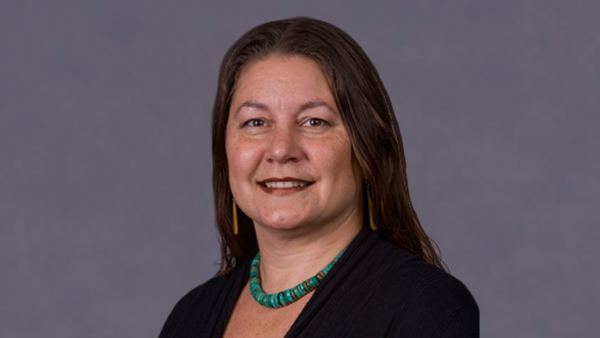March 10, 2022
Prussia named climate leadership award semifinalist
Dr. Leah Prussia, associate professor in the College’s master of social work program, was selected as one of 30 semifinalists for an American Climate Leadership Award. This award recognizes and honors outstanding achievements in climate advocacy at the local, regional and national level. Prussia was nominated for her research and subsequent publication of “A Closer Look — Natural Connections: Collaboration with the Environment,” a white paper that describes a course she teaches which recognizes the relationship between mental health and climate change impacts.
Prussia described the groundwork for her publication as a lifelong journey. Prior to joining the St. Scholastica community, she had the opportunity to serve as deputy director for the White Earth Land Recovery Project. This experience represented the beginning of a powerful intersection between clinical work and a curiosity about how humans are impacted by the natural world.
The work also inspired her to develop an eco-psychology course at the White Earth Tribal and Community College that blended psychology principles with Anishinaabe teachings. Prussia integrated somatic literacy — the observing, listening to and trusting of the innate rhythms of the body — into her teachings and eventually wrote her dissertation on the role of social work in healing the environment.
“I care about the planet, I care about the birds, trees, water and the land,” she said. “I see this work as an opportunity to heal our disconnect and objectification of the natural world and return to authentic relationships with all that lives.” Put simply, the relationship between personal and planetary healing cannot be overlooked.
Since 2015, Prussia has been encouraging up-and-coming clinicians at the College to consider their identity in relation to the land and how to access the natural world as an active partner in the healing process. Although the course, Somatic Literacy Clinical Collaboration with the Natural Environment, is a culmination of her personal and professional passions, Prussia acknowledged the true origins of her teachings.
“This is not my work; I am a conduit for thousands of years of teachings that originate from my Anishinaabe ancestors.”


